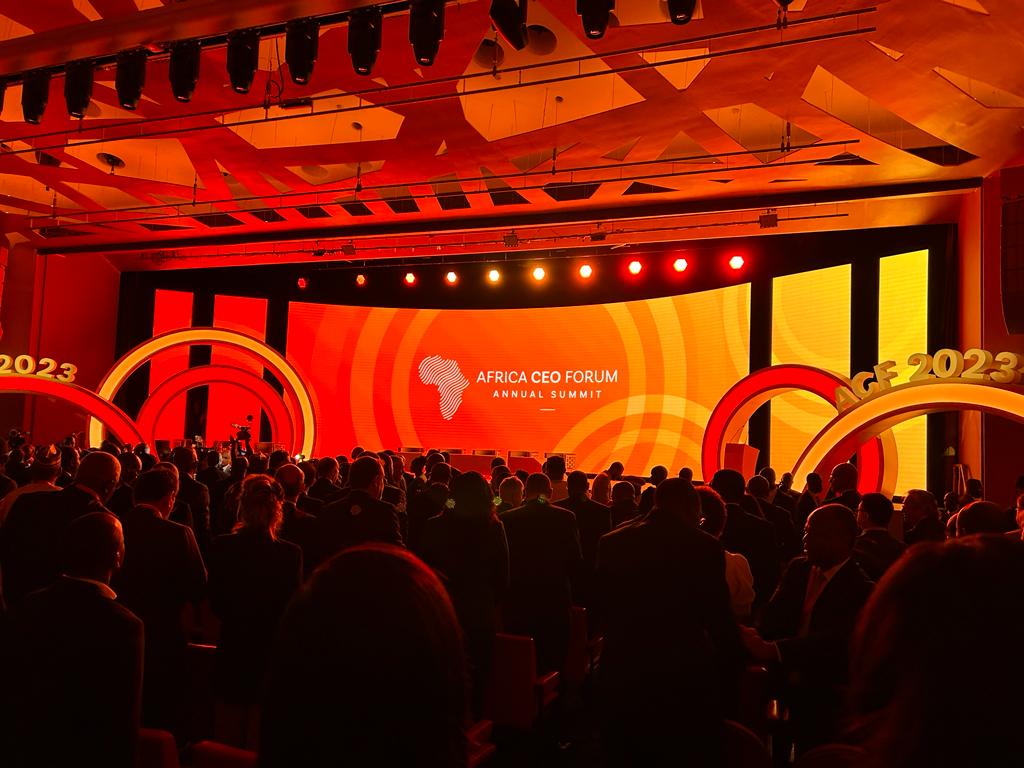Africa has been urged to grab opportunities on the continent’s Carbon Market for transparency, equitable, and jobs creation from the climate change projects.
Africa Finance Corporation Chief Executive Samaila Zubairu has called for tailored solutions in the continent’s trillion-dollar carbon market to drive a sustainable, inclusive economic transformation in Africa.
According to the sector players this is to ensure change of regulation, systems and markets to protect the interests of Africa.
Speaking during the Africa CEO Forum 2023, Zubairu challenged Africa to take advantage of its carbon markets even as he underscored multilateral partnerships between African governments for a common goal.
He said, “Africa should establish the Carbon Markets Foundation to support African governments with the knowledge and expertise to take advantage of the markets to benefit the African people to ensure Africa benefits from Africa.”
Garbon’s Minister of Economy and Recovery Nicole Janine Lydie Roboty, identified Africa’s major challenges as including climate change, loss of bio-diversity and pollution. Climate change.
Nicole cited climate change as a bigger challenge than the security and economic problems of the continent.
They spoke during a two-day Africa CEO Forum 2023 hosted in Abidjan, Côte d’Ivoire on June 5.
Other dignitaries included Dr. Mahmoud Mohieldin, UN Climate Change High Level Champion, Gagan Gupta, CEO ARISE Integrated Industrial Platforms (ARISE IIP) and Carlos Lopez, Prof. University of Cape Town.
The event brought together 2,000 participants, including the continent’s leading economic players, as well as heads of state and ministers.
During the forum, the delegates discussed the emergence of a new generation of African champions capable of making their mark on the global economy amidst economic headwinds.
Africa’s Carbon Market Opportunity
Carbon emissions trading, including “cap and trade” systems, are key ways of reducing emissions.
The World Bank says Africa accounts for only two per cent of trading in the global carbon market, with South Africa and Nigeria leading the way.
However, there are calls from the industry players urging African countries to increase the number of carbon reduction investment opportunities.
Africa needs about $3 trillion in order to implement its nationally determined contributions (NDCs) under the Paris Climate Accords, according to the Africa Group of Negotiators.
In addition, developed countries have provided only $80 billion of the $100 billion in climate finance they pledged to contribute annually to developing countries; of this, less than $20 billion was provided in total to Africa between 2016 and 2019.
Voluntary carbon markets (VCMs) estimate that demand for carbon credits could increase by a factor of 15 or more by 2030 and by a factor of up to 100 by 2050.
Overall, the market for carbon credits could be worth upward of $50 billion in 2030.
Fully developed VCMs could not only generate attractive returns on investment in African countries, but also help them meet their own environmental challenges, from boosting renewable power to adopting cleaner cooking methods to reducing deforestation.
For instance, a report published by the United Nations Global Crisis Response Group’s 3rd Brief on Energy highlights the opportunity for carbon markets to provide the necessary financing to overcome issues related to the high upfront costs of clean energy projects.

